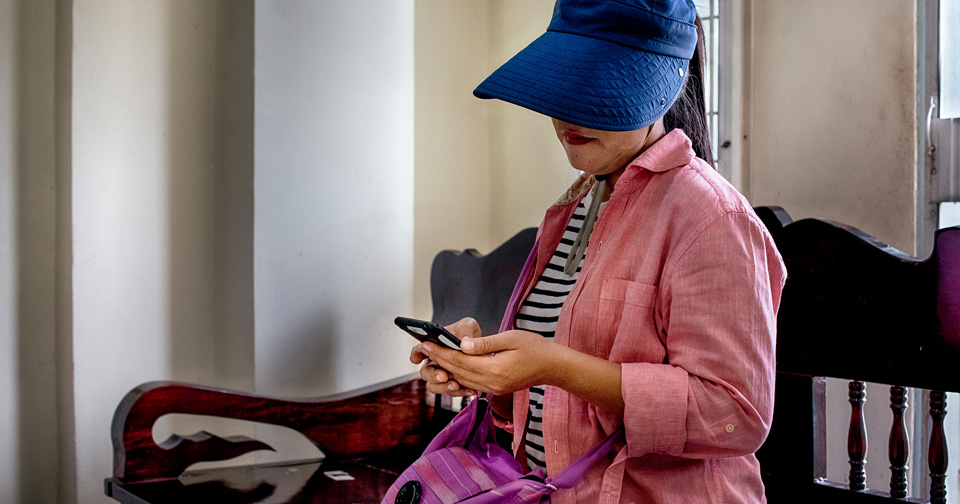Journeys out of the Ordinary | Sabare’s story
“My new job reflects my life. I help people who are going through the same hardships we had.” —Sabare, Thailand
Date:

My husband and I came to Thailand eight years ago with our two-year-old daughter to find work. We thought things were going to be different, easier.
When we first left Myanmar we had lots of troubles; there was no help and we suffered alone. In Myanmar, we had had food and a place to live, but when we came to Thailand, finding a job was difficult, and even though the income was higher, the work situation was unstable. We were dependent on the employer for food, and some days we had none. There was a lot we didn’t know. We worked in the fields picking corn. It was hard work and I was pregnant, and I gave birth to my second daughter at that time.
The next job I found was in a noodle shop with a friend. There were many misunderstandings because we didn’t speak Thai yet and the owner hit and pinched us when we made mistakes. She was always angry, but we didn’t understand why. One day my friend, who was partially deaf, mixed up some sauces, and as punishment the owner of the noodle shop poured a bottle of hot sauce into her mouth. I was shocked at this cruel response to such a small mistake. I decided to leave the job, but my friend said she needed the money and stayed. I was never paid for the days I worked.
I had no idea about my rights at that time. Now I know better and I spread the information in the migrant community, that if an employer violates your rights, there is someone to help.
Things are good for my family these days. My daughters go to the Thai/Burmese school so they will not be so helpless like me. I work full-time for an NGO that supports poor Burmese migrant families. I support about 30 families myself. I also spread awareness by talking to families when I’m distributing food and I listen to them when they have problems, for example, when they aren't paid.
In addition to helping others, my work with the NGO has improved my personal and professional capacity. I especially appreciate the translators who come to my home to teach me basic Thai. My colleagues at the office are supportive and patiently explain how to do things. I have also learned not to let fear limit me.
I love my job. It reflects my life. In this job, I help people who have the same experiences and hardships that we had.
My message to employers using violence is: “You know there is poverty and hardship in Myanmar and that we come here in good faith to make a better life. I ask employers to be understanding, respect our rights and treat us well.”
Object description:
These earrings were one of the most important objects I brought with me when I migrated to Thailand. My mother had them made for me when I was young, and during my journey they reminded me of her and my home country.
Services and information must be provided in convenient places (markets or other locations where migrant women gather) and at convenient times such as weekends or after work. Language can be a barrier to women understanding their rights and seeking help in a destination country. Safe and Fair works to ensure that interpretation services are available for migrants.
